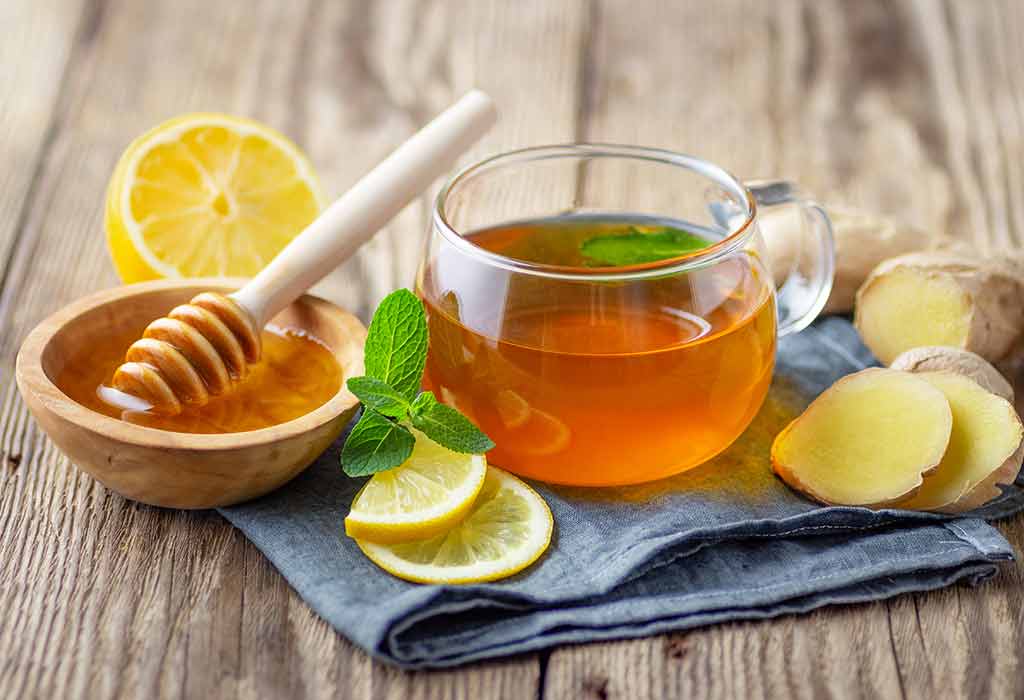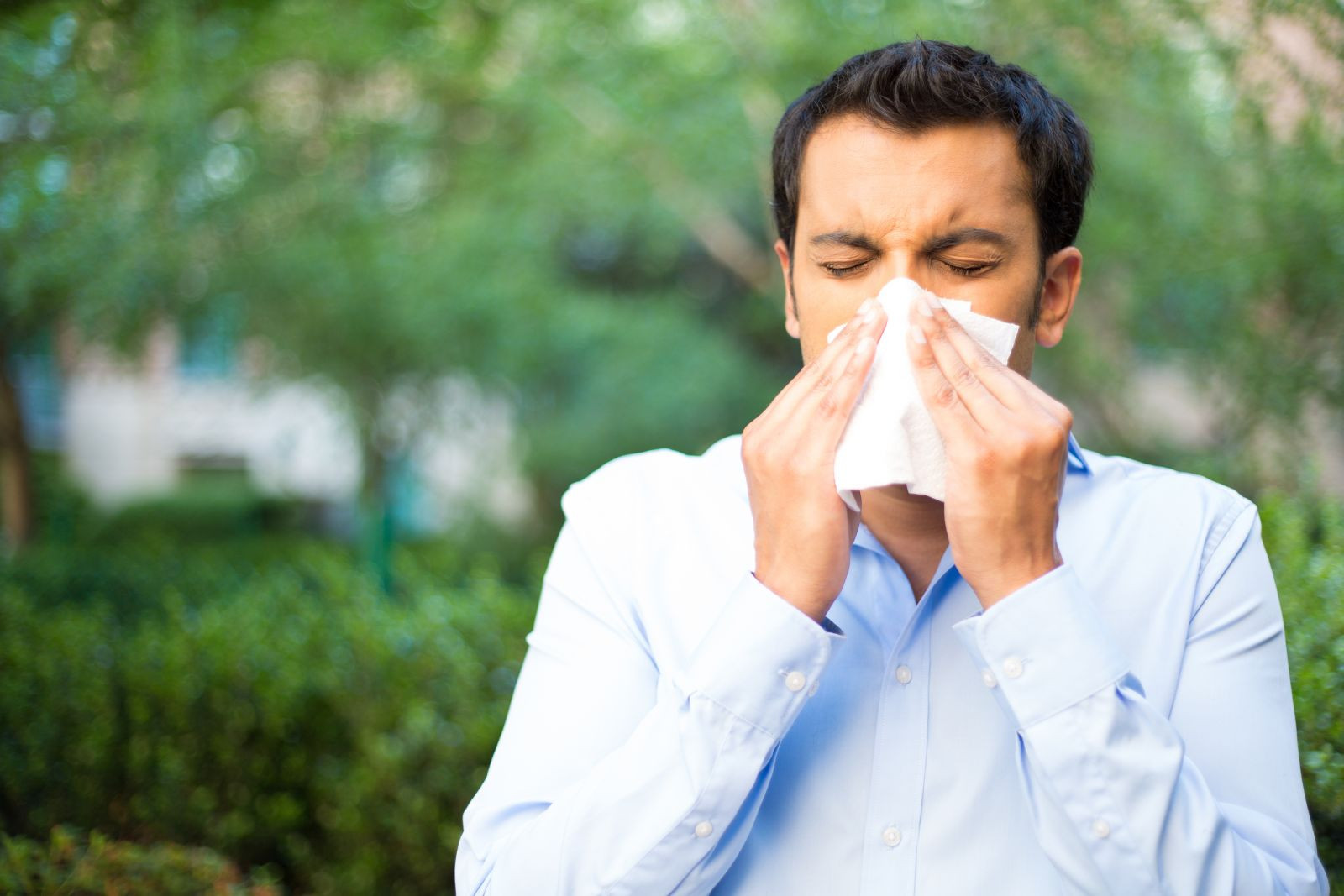Exercise Daily – Dealing with allergies can feel like an uphill battle. From sneezing and coughing to itchy eyes and a runny nose, the symptoms can disrupt your day-to-day life. But did you know there are natural remedies that can help alleviate your allergy symptoms? In this comprehensive guide, we’ll explore the world of natural remedies for allergies and respiratory problems, focusing on simple, effective ways to ease discomfort without relying solely on over-the-counter medications. Whether you’re seeking to reduce your reliance on pharmaceuticals or simply looking for additional support, these natural strategies can make a significant difference in managing your symptoms.
Understanding Allergies: What Happens in Your Body
The Immune System’s Role in Allergies
Allergies occur when your immune system overreacts to substances, known as allergens, that are typically harmless to most people. Common allergens include pollen, dust mites, mold, pet dander, and certain foods. When an allergen enters your body, your immune system mistakenly identifies it as a threat and produces antibodies called Immunoglobulin E (IgE). These antibodies trigger the release of chemicals like histamines, which lead to the symptoms associated with allergic reactions.
The Allergy Cycle: From Exposure to Symptom Relief
Understanding the allergy cycle can help you manage your symptoms more effectively. The cycle begins with exposure to an allergen, followed by the immune system’s response. Symptoms arise as a result of this response, and managing these symptoms involves either reducing exposure to the allergen or mitigating the immune system’s reaction through various remedies.

Common Allergy Triggers
Seasonal vs. Perennial Allergens
Allergens can be categorized based on their prevalence:
- Seasonal Allergens: These include pollen from trees, grasses, and weeds. They tend to spike during specific times of the year, such as spring and fall.
- Perennial Allergens: These are present year-round and include dust mites, pet dander, mold, and cockroaches.
Less Common Triggers
While pollen and dust are the most common, other allergens like insect stings, certain medications, and specific foods can also trigger allergic reactions. Understanding all potential triggers is essential for comprehensive allergy management.
The Symptoms of Seasonal Allergies
Common Symptoms
Seasonal allergies, often referred to as hay fever, can cause a variety of uncomfortable symptoms, including:
- Nasal Congestion: Blocked nasal passages can make breathing difficult.
- Sneezing and Coughing: Frequent sneezing and coughing can disrupt daily activities.
- Runny Nose and Itchy Eyes: These symptoms can be both annoying and uncomfortable.
- Fatigue: Persistent symptoms can lead to tiredness and decreased energy levels.
Severe Symptoms
In some cases, seasonal allergies can lead to more severe symptoms, such as:
- Asthma Exacerbations: Allergies can trigger asthma attacks characterized by wheezing and shortness of breath.
- Sinus Infections: Chronic congestion can lead to sinusitis, causing pain and pressure in the facial area.
- Sleep Disturbances: Persistent symptoms can interfere with sleep, leading to further fatigue and irritability.
Identifying the Signs of Allergic Reactions
Mild vs. Severe Reactions
Allergic reactions can range from mild to severe:
- Mild Reactions: These include itching, sneezing, and a runny nose. While uncomfortable, they are typically manageable with over-the-counter remedies or natural treatments.
- Moderate Reactions: Symptoms like significant nasal congestion, persistent coughing, and watery eyes require more focused treatment to prevent interference with daily life.
- Severe Reactions: Anaphylaxis is a rare but life-threatening reaction that can cause swelling of the throat, difficulty breathing, and a rapid drop in blood pressure. Immediate medical attention is crucial in such cases.
Recognizing Early Signs
Early recognition of allergic reactions is essential to prevent complications. Common early signs include:
- Itchy Throat or Ears: Often the first indication of an allergic response.
- Red, Watery Eyes: A clear sign of irritation and histamine release.
- Mild Skin Reactions: Such as hives or eczema flare-ups.
Home Remedies for Allergy Relief
Natural home remedies can help you find relief from allergy symptoms without the side effects of some allergy medications. These remedies not only alleviate symptoms but can also improve your overall respiratory health.
The Power of Local Honey
One of the most popular natural remedies for allergies is local honey. The idea is that consuming honey produced by bees in your area may help your body build a tolerance to local pollen. Here’s how it works:
- Building Immunity: Ingesting small amounts of local pollen through honey may help your immune system become less reactive over time.
- Anti-Inflammatory Properties: Honey has natural anti-inflammatory properties that can soothe irritated tissues in the throat and nasal passages.
How to Use Local Honey:
- Daily Consumption: Take a spoonful of local honey each day, either straight or mixed into warm water or tea.
- Incorporate into Foods: Add honey to yogurt, oatmeal, or smoothies for added benefits.
Saline Solution: A Nasal Savior
Saline nasal irrigation, such as using a saline spray or a neti pot, is a fantastic way to flush allergens and mucus from your nasal passages.
- Mechanism of Action: The saline solution helps to wash away allergens, reduce nasal congestion, and soothe irritated tissues.
- Benefits: Provides fast relief from sneezing, runny noses, and congestion without any side effects.
How to Use a Neti Pot Effectively:
- Prepare the Solution: Use a sterile saline solution, ensuring it’s properly mixed to avoid irritation.
- Positioning: Tilt your head over a sink at a 45-degree angle.
- Application: Pour the saline solution through one nostril, allowing it to flow through your nasal cavity and out the other nostril.
- Clean Thoroughly: After use, clean the neti pot thoroughly to prevent contamination.

Quercetin: A Natural Antihistamine
Quercetin is a plant-based compound found in many fruits and vegetables, particularly apples, berries, and onions.
- Antihistamine Properties: Quercetin acts as a natural antihistamine by stabilizing mast cells and preventing the release of histamines.
- Anti-Inflammatory Effects: It also helps reduce inflammation, which can alleviate symptoms like swelling and irritation.
Sources of Quercetin:
- Fruits and Vegetables: Apples, berries, onions, and kale are excellent sources.
- Supplements: Available in capsule or tablet form for those who need higher doses.
Essential Oils: Aromatherapy for Respiratory Relief
Essential oils like eucalyptus, peppermint, and lavender can provide relief from allergy symptoms through their anti-inflammatory and decongestant properties.
- Eucalyptus Oil: Helps to open up nasal passages and reduce congestion.
- Peppermint Oil: Contains menthol, which can soothe irritated airways and improve breathing.
- Lavender Oil: Offers calming effects and can reduce inflammation.
How to Use Essential Oils:
- Diffusers: Add a few drops to a diffuser to inhale the vapors.
- Steam Inhalation: Mix essential oils with hot water and inhale the steam.
- Topical Application: Dilute with a carrier oil and apply to the chest or temples for localized relief.
Probiotics: Balancing Your Gut for Better Immunity
Probiotics are beneficial bacteria that support gut health, which in turn can influence your immune system.
- Immune Regulation: A healthy gut microbiome helps regulate the immune response, potentially reducing the severity of allergic reactions.
- Sources of Probiotics: Yogurt, kefir, sauerkraut, kimchi, and probiotic supplements.
Incorporating Probiotics:
- Daily Intake: Include probiotic-rich foods in your diet regularly.
- Supplements: Consider taking a high-quality probiotic supplement, especially during allergy season.
Vitamin D: Enhancing Immune Function
Vitamin D plays a crucial role in modulating the immune system and reducing inflammation.
- Immune Support: Adequate levels of vitamin D can help your body respond appropriately to allergens.
- Sources of Vitamin D: Sun exposure, fatty fish, fortified foods, and supplements.
How to Ensure Adequate Vitamin D:
- Sun Exposure: Spend time outdoors safely to boost your vitamin D levels naturally.
- Dietary Sources: Incorporate vitamin D-rich foods into your meals.
- Supplementation: Consult with a healthcare provider to determine if you need supplements.
Natural Remedies for Seasonal Allergies
If you’re tired of reaching for allergy medications every time allergy season rolls around, it might be time to consider natural alternatives. From herbal teas to immune-boosting fruits, nature has provided us with plenty of remedies to keep allergy symptoms in check.
Herbal Teas to Reduce Allergy Symptoms
Herbal teas can be soothing and effective in reducing allergy symptoms thanks to their anti-inflammatory and antihistamine properties.
- Nettle Tea: Nettle contains compounds that can reduce the production of histamines, alleviating symptoms like sneezing and itching.
- Peppermint Tea: The menthol in peppermint can help open up nasal passages and soothe irritated airways.
- Green Tea: Rich in antioxidants, green tea can help strengthen the immune system and reduce inflammation.
Brewing Tips:
- Fresh Herbs: Use fresh herbs when possible for maximum potency.
- Regular Consumption: Drink herbal teas regularly throughout the day for sustained relief.

Citrus Fruits for Boosting Immunity
Citrus fruits like oranges, lemons, and grapefruits are packed with vitamin C, a powerful antioxidant that supports the immune system.
- Vitamin C Benefits: Helps your body fight off allergens more effectively and reduces inflammation caused by allergic reactions.
- Additional Nutrients: Citrus fruits also contain bioflavonoids, which enhance the immune-boosting effects of vitamin C.
Incorporating Citrus Fruits:
- Morning Juice: Start your day with a glass of freshly squeezed citrus juice.
- Snacks: Enjoy whole citrus fruits as a healthy snack.
- Salads and Dishes: Add slices of citrus fruits to salads, desserts, or main dishes for added flavor and nutrition.
Local Herbal Supplements: Tailoring Remedies to Your Needs
In addition to common herbs like nettle and peppermint, other local herbs can offer targeted relief for allergy symptoms.
- Butterbur: Known for its ability to reduce nasal congestion and other allergic symptoms without the sedative effects of some medications.
- Spirulina: A type of blue-green algae that has been shown to reduce nasal inflammation and symptoms of allergic rhinitis.
Using Herbal Supplements:
- Consultation: Always consult with a healthcare provider before starting any new herbal supplement.
- Quality Products: Choose high-quality, reputable brands to ensure safety and efficacy.
Lifestyle Changes to Manage Allergies
Beyond specific remedies, certain lifestyle changes can significantly impact your ability to manage and reduce allergy symptoms.
Diet and Nutrition: Fueling Your Body for Better Immunity
What you eat can influence how your body responds to allergens. Incorporating anti-inflammatory foods and avoiding potential triggers can make a big difference.
- Anti-Inflammatory Foods: Incorporate foods like leafy greens, berries, fatty fish, and nuts that help reduce inflammation.
- Avoiding Triggers: Identify and eliminate foods that may exacerbate your allergy symptoms, such as dairy or gluten, if you’re sensitive.
Regular Exercise: Enhancing Respiratory Health
Engaging in regular physical activity can improve your overall respiratory health and help manage allergy symptoms.
- Benefits: Exercise can strengthen the respiratory system, improve circulation, and reduce stress, which can exacerbate allergies.
- Outdoor Activities: Be mindful of pollen counts when exercising outdoors. Opt for indoor workouts during high pollen days.
Stress Management: Reducing Immune System Overactivity
Stress can weaken the immune system and increase the severity of allergic reactions.
- Techniques: Practice stress-reducing techniques such as meditation, yoga, deep breathing exercises, or tai chi.
- Balanced Lifestyle: Ensure you have a balanced lifestyle with adequate rest, relaxation, and activities that bring you joy.
Sleep Hygiene: Supporting Your Body’s Healing Processes
Adequate sleep is essential for maintaining a healthy immune system and managing allergy symptoms.
- Sleep Quality: Ensure your bedroom is allergen-free by using hypoallergenic bedding and maintaining a clean environment.
- Routine: Establish a regular sleep routine to support overall health and immune function.
Preventing Allergy Flare-ups Naturally
Prevention is often the best cure. Reducing your exposure to allergens can help keep symptoms at bay, and there are several natural ways to do so.
Managing Pollen Exposure at Home
When pollen counts are high, minimizing exposure is key to preventing allergy flare-ups.
- Stay Indoors: Limit outdoor activities during peak pollen times, typically early morning and late afternoon.
- Protective Measures: Wear sunglasses and a hat to keep pollen out of your eyes and hair when you are outside.
Keeping Your Home Clean and Allergen-Free
Maintaining a clean home environment can significantly reduce the presence of allergens.
- Regular Cleaning: Dust and vacuum your home frequently using a vacuum with a HEPA filter.
- Minimize Clutter: Reduce clutter where dust and allergens can accumulate.
- Control Humidity: Use a dehumidifier to keep indoor humidity levels low, preventing mold growth.
Using Air Filters to Reduce Indoor Allergens
Investing in high-quality air filters can make a world of difference, especially if you suffer from indoor allergies.
- HEPA Air Filters: These filters trap dust, pollen, pet dander, and even mold spores, helping to reduce allergen exposure inside your home.
- Placement: Place air purifiers in key areas such as bedrooms and living rooms for maximum effectiveness.
Natural Pest Control: Keeping Pests at Bay
Pests like dust mites and cockroaches can exacerbate allergy symptoms. Natural pest control methods can help keep these allergens under control.
- Dust Mites: Use allergen-proof covers on mattresses and pillows, wash bedding in hot water regularly, and reduce humidity levels.
- Cockroaches: Keep your home clean, seal cracks and crevices, and use natural repellents like peppermint oil.

Additional Natural Remedies for Respiratory Problems
In addition to managing allergies, natural remedies can support overall respiratory health, making it easier to breathe and reducing the impact of respiratory problems.
Ginger: A Spicy Solution for Inflammation
Ginger has potent anti-inflammatory and antioxidant properties that can help alleviate respiratory issues.
- Benefits: Helps reduce inflammation in the airways, making breathing easier and reducing the severity of symptoms.
- How to Use: Incorporate fresh ginger into your diet, brew ginger tea, or take ginger supplements.
Turmeric: The Golden Anti-Inflammatory
Turmeric contains curcumin, a compound known for its powerful anti-inflammatory effects.
- Respiratory Benefits: Curcumin can help reduce inflammation in the respiratory tract, easing symptoms of asthma and allergies.
- Usage Tips: Add turmeric to your meals, drink turmeric tea, or use it as a supplement after consulting with a healthcare provider.
Honey and Lemon: A Soothing Combination
A classic remedy, honey and lemon can provide immediate relief for sore throats and irritated airways.
- Honey: Acts as a natural cough suppressant and soothes the throat.
- Lemon: Provides vitamin C and helps break up mucus.
How to Use:
- Tea: Mix honey and lemon with warm water or herbal tea.
- Direct Consumption: Take a spoonful of honey with a squeeze of lemon juice for quick relief.
Garlic: Nature’s Antibiotic
Garlic has natural antibacterial and antiviral properties that can help combat respiratory infections.
- Immune Boost: Enhances the immune system, helping your body fight off infections that can exacerbate respiratory problems.
- How to Use: Incorporate fresh garlic into your meals or take garlic supplements.
Apple Cider Vinegar: A Versatile Remedy
Apple cider vinegar (ACV) can help reduce mucus buildup and support overall immune health.
- Benefits: ACV can thin mucus, making it easier to expel, and it has antimicrobial properties.
- Usage Tips: Mix one to two tablespoons of ACV with water and honey, and drink daily.
Mind-Body Practices for Enhanced Allergy Management
Integrating mind-body practices into your routine can complement natural remedies and enhance your ability to manage allergies and respiratory problems.
Yoga: Enhancing Flexibility and Breathing
Yoga combines physical postures, breathing exercises, and meditation to improve overall health and reduce allergy symptoms.
- Breathing Techniques: Practices like pranayama can improve lung capacity and reduce stress, which can exacerbate allergies.
- Postures: Certain yoga poses can help open up the chest and improve respiratory function.
Meditation and Mindfulness: Reducing Stress and Improving Immune Function
Meditation and mindfulness practices can help lower stress levels, which in turn can support a healthy immune response.
- Stress Reduction: Chronic stress can weaken the immune system, making you more susceptible to allergic reactions.
- Techniques: Guided meditation, deep breathing exercises, and progressive muscle relaxation are effective methods.
Tai Chi: Balancing Energy and Enhancing Well-being
Tai Chi, a form of martial arts that emphasizes slow, controlled movements and deep breathing, can improve respiratory health and reduce stress.
- Benefits: Enhances lung capacity, promotes relaxation, and improves overall physical health.
- Practice Tips: Join a local Tai Chi class or follow online tutorials to incorporate it into your routine.
Combining Natural Remedies with Conventional Treatments
While natural remedies can be highly effective, it’s important to recognize that they can complement, rather than replace, conventional treatments.
When to Seek Medical Advice
- Severe Symptoms: If you experience severe allergic reactions, such as difficulty breathing, swelling, or anaphylaxis, seek immediate medical attention.
- Persistent Symptoms: If natural remedies are not providing sufficient relief, consult with a healthcare provider for additional treatment options.
Integrating Remedies Safely
- Consultation: Always consult with a healthcare provider before starting any new natural remedy, especially if you are taking other medications.
- Monitoring: Keep track of your symptoms and any changes when trying new remedies to ensure they are effective and safe for you.
Personalized Allergy Management Plans
Creating a personalized allergy management plan that combines natural remedies with conventional treatments can provide the most comprehensive relief.
- Identify Triggers: Work with a healthcare provider to identify your specific allergens.
- Tailored Treatments: Choose natural remedies that best address your individual symptoms and triggers.
- Regular Review: Periodically review and adjust your plan based on your symptoms and any changes in your health.

Conclusion
Natural remedies for allergies and respiratory problems offer effective, side-effect-free ways to manage symptoms. From local honey to herbal teas, there are plenty of options to explore. Remember, prevention is key, and reducing your exposure to allergens can go a long way in keeping symptoms under control. By incorporating these natural strategies into your daily routine, you can enhance your overall respiratory health and enjoy a more comfortable, symptom-free life. So, next time allergy season hits, you’ll be well-prepared with these natural solutions!
FAQs: Natural Remedies for Allergies
Q: Can local honey really help with seasonal allergies?
A: Yes, consuming local honey may help build a tolerance to local pollen, reducing the severity of allergy symptoms over time. However, scientific evidence is mixed, and results can vary from person to person.
Q: How often should I use a saline nasal rinse for allergies?
A: You can use a saline nasal rinse once or twice a day during allergy season to clear your nasal passages and reduce symptoms. It’s a safe and effective way to manage congestion and irritation.
Q: Is quercetin safe for daily use?
A: Quercetin is generally considered safe for daily use, but it’s always best to consult with a healthcare provider before starting any new supplement, especially if you have underlying health conditions or are taking other medications.
Q: Are there any foods that can naturally help relieve allergy symptoms?
A: Yes, foods rich in vitamin C, like citrus fruits, and anti-inflammatory herbs, like nettle and turmeric, can help reduce allergy symptoms naturally. Additionally, incorporating probiotics and omega-3 fatty acids can support immune health.
Q: What’s the best way to reduce pollen exposure indoors?
A: Keep windows closed during high pollen days and use HEPA air filters to reduce the amount of pollen and other allergens in your home. Regular cleaning and maintaining low humidity levels also help minimize indoor pollen exposure.
Q: Can probiotics help with allergies?
A: Yes, probiotics can help balance your gut microbiome, which plays a significant role in immune system regulation. A healthy gut can reduce the severity of allergic reactions and improve overall immune response.




